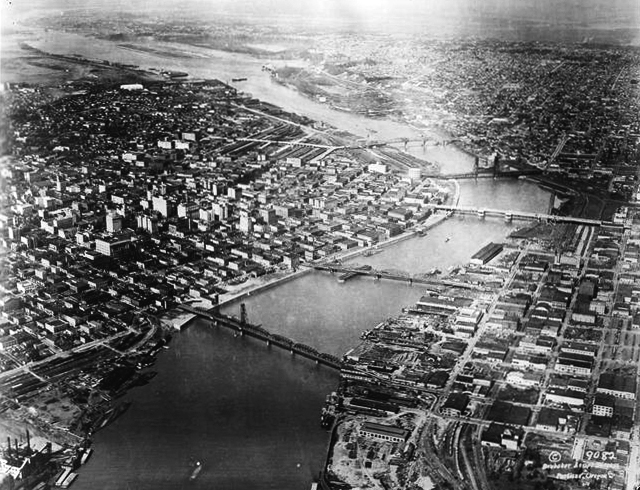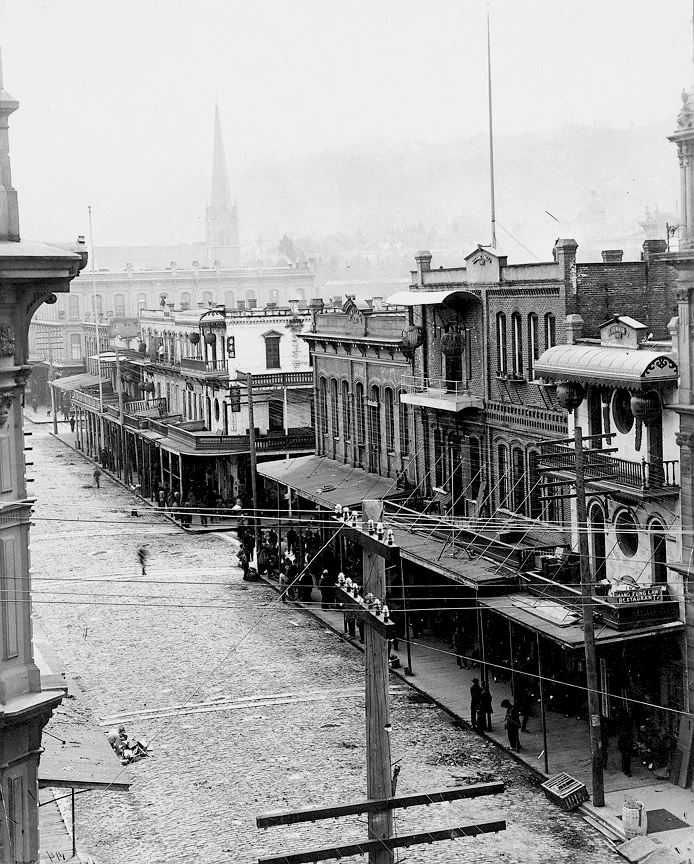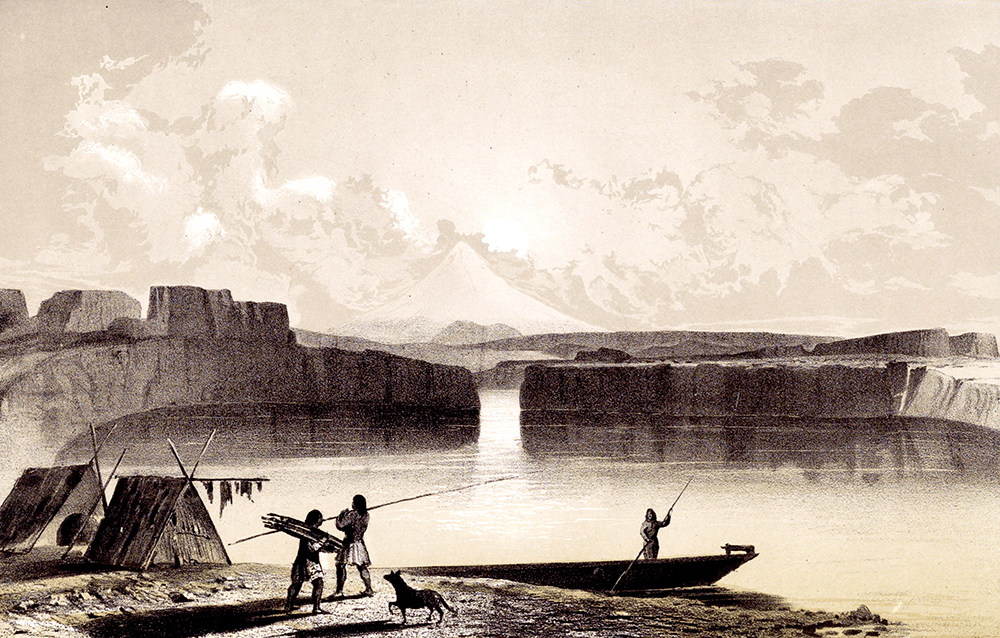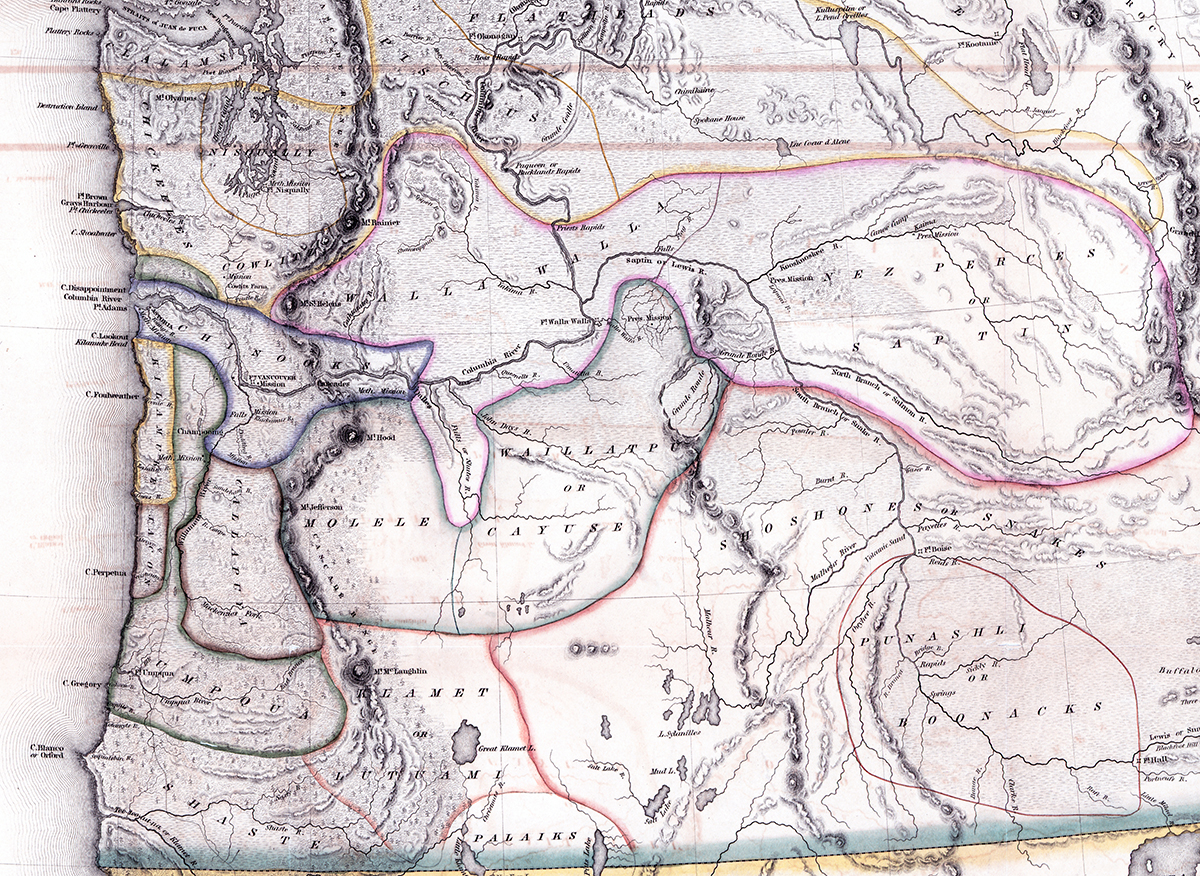Early Portland History
 When AAI was founded in 1913, the city of Portland, Oregon, was experiencing rapid growth—the population had doubled in the previous 10 years, making it the fifth largest city in the West behind San Francisco, Los Angeles, Seattle, and Denver.
When AAI was founded in 1913, the city of Portland, Oregon, was experiencing rapid growth—the population had doubled in the previous 10 years, making it the fifth largest city in the West behind San Francisco, Los Angeles, Seattle, and Denver.
 Established 16 years before the outbreak of the American Civil War, Portland's growth was owed to its strategic location at the confluence of the Columbia and Willamette Rivers, its proximity to the agricultural Tualatin Valley, and its easy access to the Pacific Ocean via the Columbia River.For hundreds of years prior to European exploration and settlement of the area, the location proved beneficial for the native communities. It served as the site of villages of the Multnomah, Kathlamet, Clackamas, bands of Chinook, Tualatin Kalapuya, Molalla and other tribes and bands of native peoples. By the mid-19th century, most Native Americans in Oregon were forced onto reservations. Following the forced relocation, a series of federal laws, notably the General Allotment Act of 1887 (referred to as the Dawes Act), were designed to permanently remove and/or assimilate Native people.
Established 16 years before the outbreak of the American Civil War, Portland's growth was owed to its strategic location at the confluence of the Columbia and Willamette Rivers, its proximity to the agricultural Tualatin Valley, and its easy access to the Pacific Ocean via the Columbia River.For hundreds of years prior to European exploration and settlement of the area, the location proved beneficial for the native communities. It served as the site of villages of the Multnomah, Kathlamet, Clackamas, bands of Chinook, Tualatin Kalapuya, Molalla and other tribes and bands of native peoples. By the mid-19th century, most Native Americans in Oregon were forced onto reservations. Following the forced relocation, a series of federal laws, notably the General Allotment Act of 1887 (referred to as the Dawes Act), were designed to permanently remove and/or assimilate Native people.
 From the 1830s on, the 2,170-mile Oregon Trail brought a steady stream of white settlers to the region—about half a million by 1880. Many stayed and built up the growing city of Portland. They also enacted laws preventing African Americans from even entering Oregon until the passage of the 13th, 14, and 15th Amendments after the Civil War. The large Chinese and Japanese populations also suffered severe discrimination both socially and legally.
From the 1830s on, the 2,170-mile Oregon Trail brought a steady stream of white settlers to the region—about half a million by 1880. Many stayed and built up the growing city of Portland. They also enacted laws preventing African Americans from even entering Oregon until the passage of the 13th, 14, and 15th Amendments after the Civil War. The large Chinese and Japanese populations also suffered severe discrimination both socially and legally.
 In the first decade of the 20th century, Portland was endeavoring to shake its reputation as a filthy, dangerous town that still possessed a significant amount of Old West miner character. It hosted the 1905 Lewis and Clark Centennial Exposition; three of the bridges across the Willamette River that connected the city and gave it the nickname of “Bridgetown” had been built; and visitors could take a two-and-a-half-hour trolley tour around all the latest, most modern sights.
In the first decade of the 20th century, Portland was endeavoring to shake its reputation as a filthy, dangerous town that still possessed a significant amount of Old West miner character. It hosted the 1905 Lewis and Clark Centennial Exposition; three of the bridges across the Willamette River that connected the city and gave it the nickname of “Bridgetown” had been built; and visitors could take a two-and-a-half-hour trolley tour around all the latest, most modern sights.